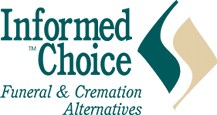Organ Donation
Organ Donation
"You have the power to save a life. Say yes to donation."
Donor Registry
The Donor Registry is a computerized database that documents your wishes regarding donation. The Registry provides valuable information to families who are unaware of a loved one’s intentions and are asked at the hospital for consent to donate.
All information is confidential. Only organ banks and coroners have access.
Facts Families Should Know About Donation
Today, all across Wisconsin, thousands of people are able to live fuller and more productive lives because of the lifesaving decisions made by families like yours. Although it is hard to believe at the time, it is possible for something positive to come from death…a new life for someone else.
Many donor families have found comfort in knowing that they and their loved one have helped life go on for someone else.
Families of prospective donors must give their permission before donation of a loved one’s organs and tissues can occur. It is much easier for your family to make the decision to donate if they know your wishes ahead of time.


